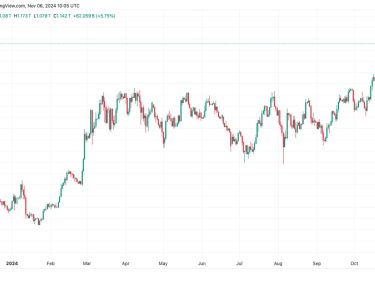Marine Le Pen’s Far-Right National Rally Party Leads in First Round of French Election
National Rally, the far-right party associated with Marine Le Pen, won the first round of France’s two-part election.
The second, and final, round of votes will be held on July 7.
Marine Le Pen’s far-right National Rally (RN) party led voting after the first round of France’s surprise general election on Sunday, Ministry of Interior data showed.
The party, founded by Le Pen’s father Jean-Marie Le Pen, secured about 19% of the registered vote according to the provisional data. The opposition Union of the Left came second with 18.19% and Ensemble, which includes President Emmanuel Macron’s Renaissance party, followed with 13.02%.
The results echo RN’s victory in the European Parliament elections, which prompted Macron to call the election at short notice. Regardless of who wins, Macron has said he does not plan to resign. However, if his party fails to secure the 289-seat majority, this could make passing legislation harder.
“It’s difficult to say what will happen next week, but what’s clear is that Macron’s gamble seems at this stage to have backfired,” Mark Foster, the EU policy lead at the Crypto Council for Innovation, told CoinDesk in a statement.
“He had hoped that RN would not do as well in legislative elections as in the European ones, but they actually got a higher score. It looks like the new parliament will have much larger far left and far right contingents, making domestic policy development (including on crypto/digital assets) uncertain and difficult whilst limiting the president’s authority on international and European stages.”
National Rally, now led by Jordan Bardella while former leader Marine Le Pen heads the parliamentary party, wants to cut funding to the European Union, reduce immigration, remove the right to citizenship by birth and expel foreign offenders. According to Brittanica.com, it has been accused of fostering xenophobia and anti-Semitism.
The first round of the election eliminates anyone that does not score 12.5% of the locally registered vote. The second round, which will be held on July 7, is a choice among whoever remains in each constituency.
The nation has already made significant progress with crypto. Last year, France registered 74 crypto companies, a number that was expected to jump to 100, and regulators have been trying to attract more.
The Markets in Crypto Asset legislation, the European Union’s wide-ranging crypto package, which includes measures for stablecoins, passed last year. The stablecoin rules have already come into effect while the rest of the legislation is expected to come into force by the end of the year. France has already enforced its own rules for the sector, something that is expected to give it a head start when it comes to implementing MiCA.




